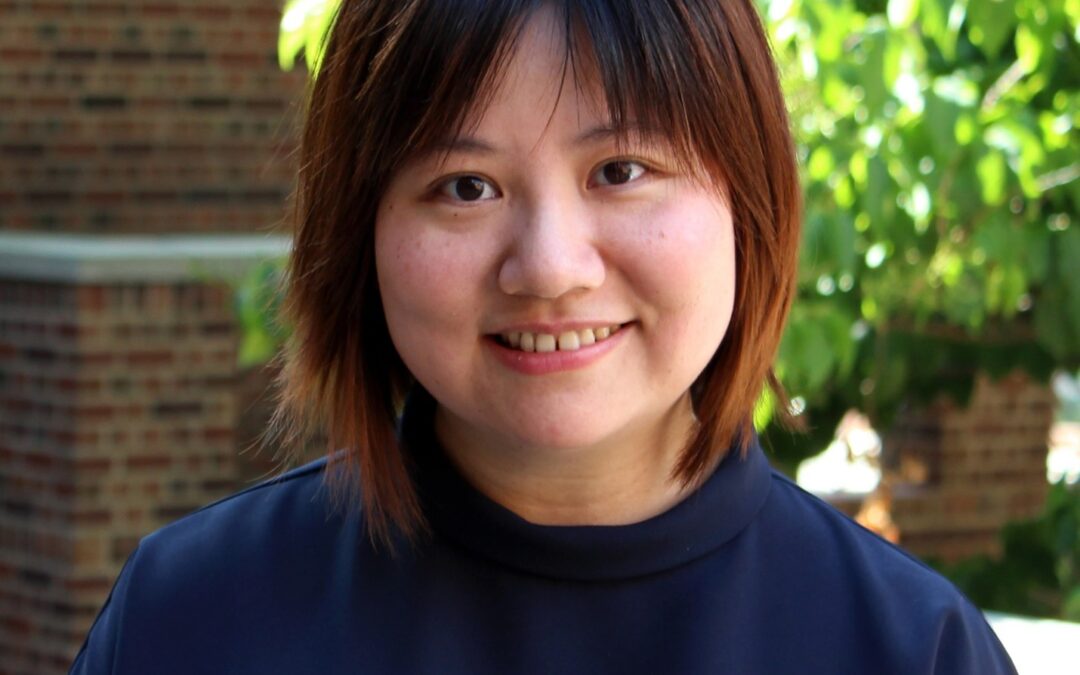Urbana, Ill. – The prevalence of health misinformation can influence public opinion, partially due to poor health literacy, and influence risk perception regarding treatments, screening, vaccinations, and cancer. Jessie Chin, assistant professor at the School of Information Sciences, is tackling this issue as a behavioral scientist.
Chin is a new member at the Cancer Center at Illinois (CCIL), taking advantage of the interdisciplinary research at the University of Illinois Urbana-Champaign to focus on cancer prevention and control and to translate basic science data into practice to serve cancer patients.
“As researchers, we are dedicated to advancing human knowledge, but it can be difficult to know how that is being translated to the public,” Chin said. “So, I am interested in knowing how we can better facilitate the process of disseminating the information and implementing the evidence-based science.”
Chin is applying her knowledge to HPV vaccinations, which suffer from low uptake rates particularly due to scientific misinformation that often cites research incorrectly and uses scientific terminology to describe false information and causality, especially through social media platforms such as Twitter.
HPV, a common sexually transmitted infection, can cause cancer in the cervix, oropharynx (head and neck), and sexual organs in individuals with high-risk HPV infections. According to the National Cancer Institute (NCI), HPV vaccinations is effective in preventing the development of HPV-related cancers.
The researchers aim to build a computational model to identify HPV-vaccine misinformation and its impacts on risk perceptions on Twitter using psycholinguistic methods, machine learning and natural language processing. The research, funded by the NCI, proposes to use this user-generated data to examine the underlying mechanisms of risk perception development and its impact on individuals.
Chin is also applying her expertise in health literacy to develop tools to translate health promotion and lifestyle information for patients with breast cancer and spinal cord injuries. Both patient populations face continuous challenges in adjusting to lifestyle changes, often requiring further help post-rehabilitation to perform basic daily activities.
“Cancer is a chronic illness starting with diagnosis. And there are different needs, like the need to address symptoms, form new habits and lifestyle, and mental concerns that evolve across the cancer continuum,” Chin said. “And it isn’t as easy to ask for help for these issues.”
These proactive interventions focus on developing technological tools to continue care after discharge, and this research is conducted in collaboration with Chung-Yi Chiu and Chengxiang Zhai, both Illinois faculty and members of the Center for Artificial Intelligence Driven Health Data Systems and Analytics.
“The ultimate goal is to bridge behavioral and health sciences, and the innovative technologies to develop more accessible, continued, and personalized interventions to help cancer survivors,” Chin said.
– Written by the CCIL Communications Team
Jessie Chin’s research lab, the Adaptive Cognition and Interaction Design (ACTION) lab, focuses on human-centered computational solutions that promote cognition and health communication.
Read more about Chin’s health literacy research in the Journal of General Internal Medicine and The Gerontologist.

